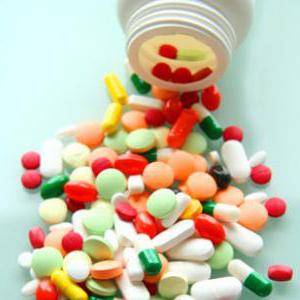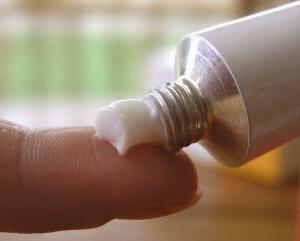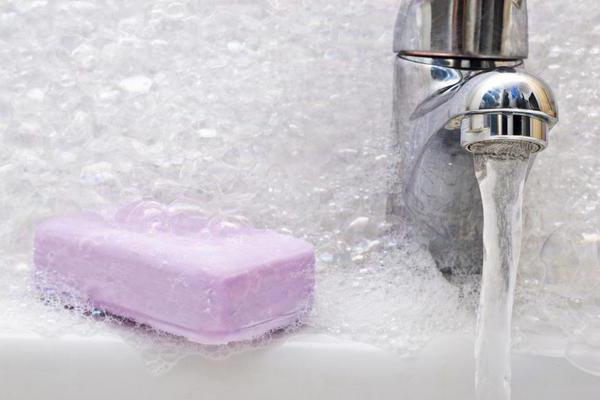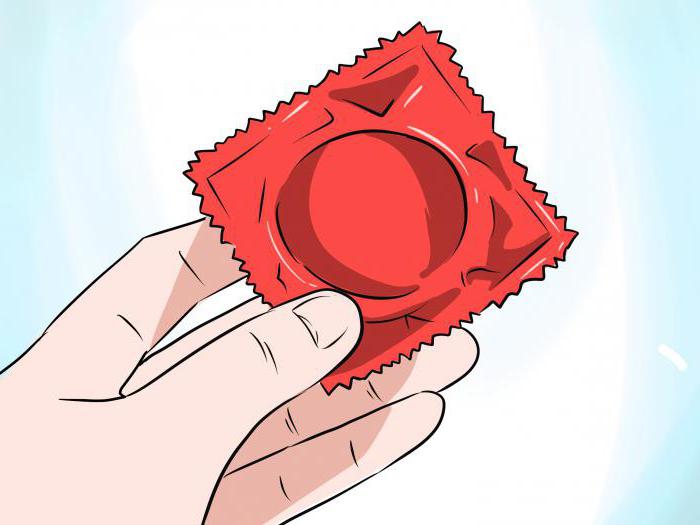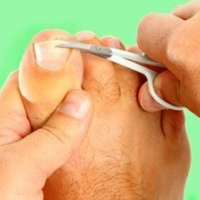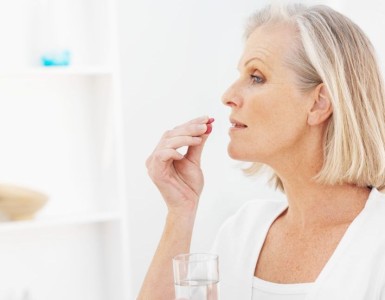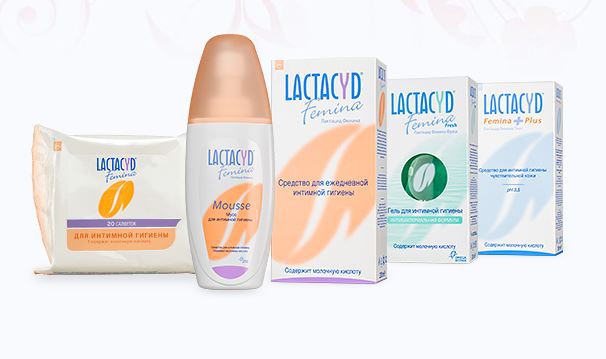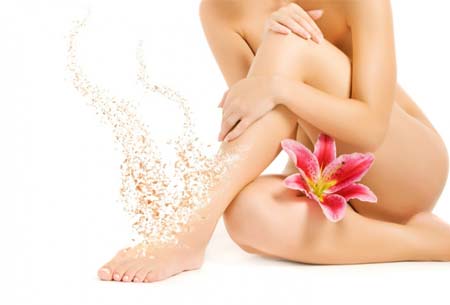Site sections
Editor's Choice:
- Available methods for rapidly increasing blood leukocytes
- Nail and skin fungus will not resist the coffee grounds
- Crocus furniture exhibition. Furniture exhibitions
- Owl tattoo on arm value
- The biggest members in the world
- Fractures of the phalanges of the toes of the photo
- What is “bad” and “good” cholesterol
- What to do if the skin around the nails dries
- The safest natural varnishes list
- Olive oil: is there any point in buying expensive varieties?
Advertising
| Itching in the intimate area of both partners. Herbal decoctions. Swab with boric acid. |
|
Almost every woman can face a situation where unpleasant sensations arise in the area of the external genital organs, expressed by itching, burning or dryness. The causes of this phenomenon can be quite different. Sometimes itching or burning is an informative symptom of a disease, such as an allergic reaction or a sexually transmitted infection. As a rule, treatment is aimed at eliminating the cause, after which the discomfort disappears on its own. In addition to the disease, there are reasons that have nothing to do with it. Related symptomsIn a healthy woman, vaginal mucus serves to moisturize the vaginal walls, which prevents dryness and discomfort. In addition, it is the body’s natural defense against the entry of pathogenic bacteria, as well as a barrier to their spread. If there are any disruptions in the process of producing this mucus, in addition to unpleasant sensations, problems may arise in sexual life, since sexual intercourse becomes painful. In addition to itching, burning and dryness, there may additionally appear:
Causes of itching and burning, not related to the diseaseSuch discomfort may occur due to:
To get rid of unpleasant sensations in the genital area, it is recommended to eliminate the cause of their appearance. However, if this did not help, then itching, burning, or dryness were triggered by the disease. If itching and burning are accompanied by secretionsIf atypical secretions are added to these unpleasant sensations, then an infection is definitely present in the body, which is actively spreading. Normally there are, but there is no discomfort. If they have changed their color and other external characteristics, it is necessary to consult a gynecologist as soon as possible for advice. Itching, burning, dryness in intimate zone can signal about the pathological processes in the female body and the presence of diseases of the urogenital system. There are several diseases whose main symptoms are itching, burning and white discharge. CandidiasisThe cause of the disease is Candida fungus. Normally, it is located in the vagina of every woman, but the balance of good and bad bacteria does not allow him to actively reproduce. But if there are some factors, this balance is disturbed, and infection occurs. These factors are:
In addition to itching and burning, the following symptoms are present:
In this case, the treatment of dryness and burning in the intimate area requires the use of antibacterial agents. Their action is aimed at neutralizing and destroying the fungus - the main culprit of the disease. Antibiotics against candidiasis are available in the form of suppositories, pills and ointments. The main rule is that both sexual partners should be treated. Bacterial vaginosisThis disease is characterized by a violation of the bacterial balance in the vagina, in which the number of bad microorganisms increases dramatically. This is the main cause of infectious inflammation, or bacterial vaginosis. In addition to itching and burning, it is impossible to eliminate even by frequent water procedures, and atypical discharge (usually white, rarely grayish or greenish, stretching, thick). The causes of this disease are:
Treatment is carried out only after the diagnosis, the purpose of which is to determine the type of bacteria that provoked an imbalance. Only after this antimicrobial therapy is carried out. Genital herpesIn this case, in addition to itching and burning, a small rash appears, which is a small blister with yellowish contents inside. After these bubbles are opened, erosions are formed, which give a burning sensation. Sexually transmitted disease is transmitted. In many cases, the patient is not aware of the infection, since immunity prevents the infection from spreading. However, by reducing the function of the immune infection, the herpes virus is activated. The danger of the disease is a constant relapse, as well as asymptomatic occurrence. In addition, the danger of the disease is for the embryo, but only if the expectant mother was infected during pregnancy for the first time. Itching during pregnancyThere is dryness and burning sensation in the intimate area and during pregnancy. This happens because of the background of a woman and a decrease in overall immunity. This contributes to the enhancement of vaginal secretion, as well as the activation of pathogenic bacteria. In addition, if there were pathogens of thrush or other fungal diseases in the body of a woman before pregnancy, itching becomes strong enough and brings discomfort to everyday life. It is not necessary to self-medicate in this case and set yourself diagnoses yourself, even if you are confident in it. During pregnancy, all appointments should be made by a doctor on the basis of the examination. Self-medication is unacceptable.
In addition, you can protect yourself and your future baby if you prevent the possibility of the infection spreading even before pregnancy and undergo a course of preventive treatment in advance. Discomfort after childbirthThis problem, namely dryness in the intimate area, is one of the most common among young mothers. This is due to hormonal disorders in the body, so it’s enough just to wait a while for the body to return to the prenatal state. Vaginal dryness is caused by a significant decrease in estrogen, which during pregnancy was many times greater. Within six weeks after giving birth, doctors do not recommend starting a sex life, since wounds need to be completely healed. This can be helped by lubricating with vitamin A, which helps accelerate regeneration and increase moisture. If the scar feels tactile, it can be lubricated. olive oil. If symptoms, including itching and dryness, persist for several months, you should consult with a gynecologist. You may need plastic surgery to smooth the scar. Why there is discomfort during menstruationThe statistics says that itch in intimate place during menstruation, every woman felt at least once in her life. This is due to the fact that during this period various kinds of hormonal disruptions can occur in the body. In addition, itching and dryness of the intimate zone can occur against the background of violations of the thyroid and pancreas glands. Also, diabetes can cause discomfort for the same reason. After stabilization of hormonal background, itching and dryness go away on their own, and additional treatment in this case is not required. In addition, the cause of the discomfort can be an infection, but if this phenomenon recurs with enviable regularity, then the cause of this phenomenon is likely to be a decrease in the level of the hormone estrogen at certain periods of life. However, to verify this, you must still contact your gynecologist for advice. You may still need to use special vaginal tablets or suppositories, which include hyaluronic and lactic acid. Discomfort after sexual intercourseSometimes sexual intercourse may not bring the pleasure that is expected of him. And this may be due to burning and itching in the intimate area immediately after sex. One of the causes of discomfort may be an allergic reaction to latex or condom flavors. If this reason is excluded due to impossibility, then thrush, or candidiasis, leads to unpleasant sensations in the intimate area. This disease develops as a result of the reproduction of a fungus of the genus Candida, in which, in addition to dryness, white cheesy discharges appear. This disease is treated for 1 to 2 weeks, depending on the neglect. Moreover, it is necessary to undergo treatment not only for a woman, but also for her sexual partner. Men also have symptoms of thrush in the form of itching and burning, but they are less pronounced.
If dryness and itching in the intimate area are caused by an allergy to the condom components or simply insufficient secretion, then it is recommended to use special lubricants that almost instantly moisturize the vagina, thereby increasing the sliveriness of its walls. In most cases, they are made on the basis of water using natural emollient ingredients, such as collagen, silk extract or bamboo extract. In addition, the composition of such funds may include antibacterial and antifungal ingredients, which will be an excellent prevention of diseases. Funds are also produced on the basis of glycerol, but it is rather difficult to wash them off after intercourse, which may, on the contrary, provoke the development of infection. Dryness in the intimate area with menopauseUnfortunately, this period sooner or later comes in every woman. In women over the age of 45, dryness in the intimate area without discharge and itching can signal the onset of menopause. During menopause, the epithelium of the vagina becomes much thinner and loses its former elasticity due to a decrease in the production of collagen fibers. In addition, the amount of vaginal secretions decreases, which is why unpleasant sensations arise, in particular, dryness in the intimate area of women. All these factors provoke atrophic processes in the perineum and vagina. Itching and burning can be so severe that it is simply unrealistic to endure. It is because of scratching the affected areas and re-infection occurs, as well as the development of additional erosions and ulcers. Do antibiotics affect the health of intimate places?One of the main causes of dryness, itching and burning in the area of the external genital organs in women is the use of antibiotics. are designed to eliminate infection and inflammation, but with it the natural flora of the intestine and vagina is also killed. The overall immunity of the body is also significantly reduced, due to which the latter is no longer able to fight the infection, and pathogenic microorganisms multiply. This is what leads to an imbalance of the vaginal microflora, which is why itching, burning and dryness appear.
Causes of itching and burning during urinationUnlike candidiasis and bacterial vaginosis, itching and burning during urination are provoked by completely different bacteria and infections. In particular, the female urinary system is affected. Bacteria from the vagina can penetrate the organs of the urinary system (urethra, ureters, bladder, kidneys), thus provoking diseases. Normally, the process of urination is not uncomfortable, which is why itching, burning, pain may indicate the presence of the disease. It can be cystitis, urethritis, urolithiasis and others. An accurate diagnosis can only be made by a doctor. Diagnostic featuresThe female intimate zone is very sensitive to various pathogens, which is why even with a small number of them very unpleasant symptoms can appear, for example, dryness in the intimate zone (treatment depends on the diagnosis). In order to make a diagnosis and prescription of treatment, it is necessary to contact a gynecologist, who will send you to conduct research:
Only after the diagnosis, the doctor makes a treatment regimen. Principles of treatmentDryness, burning in the intimate area of women, the cause of which is not the disease, goes away by itself. If relief does not come, you should contact your doctor, who will prescribe medications. If dryness and burning in the intimate area are accompanied by infectious or fungal diseases, then the disease must be cured to eliminate the symptoms. In addition, it is necessary to restore the vaginal microflora. If dryness in the intimate area (treatment, as a rule, consists in the use of moisturizers) is the result of the use of contraceptives in the form of suppositories or tablets, it is necessary to change the preparation. However, to do this not on their own, but after consulting a doctor. For moisturizing, you can use a variety of creams, gels, ointments with high content lactic and hyaluronic acid, as well as glycotene.
If dryness occurs in the intimate area during menopause, treatment is carried out. It is carried out on the basis of a survey, taking into account the results of tests. In addition, there are special remedies for dryness in the intimate area. Or suppositories, which include a certain amount of estrogen, do an excellent job with the problem of dryness of the external genital organs. These remedies eliminate dryness in the intimate area of women (treatment is based on this) and prevent the loss of flexibility of the vaginal walls. Well proven candles "Ovestin" and "Estriolovye". The treatment takes place in two stages:
All drugs are prescribed exclusively by a doctor, however, symptoms can be reduced by means that are sold in a pharmacy without a prescription:
How to eliminate unpleasant symptoms at home?Treatment of dryness and burning in the intimate area prescribed by the doctor on the basis of the study, and it is strictly individual. However, a woman at home can relieve their own condition. The main rules are:
Also help ease the condition and folk remedies from dryness in the intimate area:
When the first unpleasant symptoms appear, it is recommended to consult a specialist. The sooner they are eliminated, the less chance the disease will have complications. Itching that occurs in any part of the human body, causes quite unpleasant sensations and discomfort. And if with various diseases skin integument people still turn to specialists for help, itching in intimate places often causes tightness, so patients do not rush to see a doctor, thus aggravating their condition even more. Quite often, a small itch in an intimate place is a sign of pathological changes in the human reproductive system or manifests itself as a result of insufficient hygienic processing. However, the main cause of discomfort is frequent stress, which requires a completely different treatment regimen. Causes of itching in an intimate place.
Treatment of itching in an intimate placeIn establishing the correct diagnosis, it is not necessary to fully rely on your life knowledge or luck, because the treatment of the disease should be started immediately, contacting a specialist in a timely manner. After examining and passing the necessary tests, the dermatologist-venereologist will determine the type of infection, make the appropriate conclusion and appoint a competent and effective treatment. It is not necessary to postpone the visit to the doctor because of your constraint, since infectious and fungal diseases able to progress very rapidly. On early stage developmental pathological symptoms can be eliminated even by traditional medicine, but running form the disease already needs antibiotics. In some cases, itchy sensations in the field of intimate places can pass on their own. To improve your condition, it is recommended to take warm baths with decoctions of such medicinal herbslike chamomile, streak, calendula, celandine and cereals. However, this method can only be resorted to after determining the exact diagnosis, otherwise the disease will progress, despite healing properties medicinal plants. Among women treatment of itching in an intimate place carried out by antifungal drugswhich are taken both internally in the form of tablets, and externally in the form of ointments, gels and. Most antifungal drugs can be purchased without a prescription at a pharmacy, but it is still better to get tested by a specialist who will advise a more suitable medicine. During the period of treatment should be completely abandoned sex, otherwise the sexual partner may also become infected from the carrier of the disease. Genital infections and vaginosis are treated exclusively with antibiotics. In this case, it is necessary to consult a specialist, since such treatment must be accompanied by special hygienic procedures using therapeutic gels and creams. In addition, the patient is advised to wear underwear made from natural fabrics only, fully process his genitals and adhere to healthy eatingwhile completely refusing alcohol. In order to avoid annoying itch it is necessary:
Severe itching in intimate placeIn the female vagina constantly present a huge number of harmless microorganisms that make up its microflora. As soon as the slightest changes occur in their composition, favorable conditions arise for the development of diseases. For example, an increase in the number of fungi from the genus Candida leads to symptoms of thrush, and with an increase in bacteria of the genus, bacterial vaginosis occurs. Both of these diseases are characterized by severe itching and burning in an intimate place, and after washing, the symptoms only get worse. Probiotics help to quickly restore normal vaginal microflora - drugs that contain beneficial bacteria. These drugs include Linex and BifidumbacterinHowever, it is not recommended to apply them yourself. If you have an itch in an intimate place, this may indicate serious pathological changes in the body, so it is very important to identify the cause of such a symptom in time and select competent methods to eliminate it. Discomfort and burning in the intimate area of women can occur for domestic reasons and because of diseases of the urogenital area. So for what reasons does itching and burning appear in such a tender area? 1 What caused the discomfortItching and burning in the external genital area can occur for a variety of reasons. They can be characterized as follows:
3 Genital infections and dysbiosisDiscomfort in an intimate place is generated pathological secretions from the vagina or biting urine, which provoke irritation, redness, burning and itching. Similar symptoms are observed with:
4 Other types of diseaseVirtually all sexually transmitted diseases cause itching or burning in an intimate place.
5 Treatment eventsAs you can see, these diseases cannot be left without treatment, and both sex partners will have to be treated. For an accurate diagnosis, you must contact your gynecologist. After blood tests, urine and smears from the vagina can be judged on the causative agent of infection. Depending on the disease, the doctor will prescribe these or other antibiotics, local antimicrobials, etc.
In women in the premenopausal period, hormone production decreases, so atrophic vulvovaginitis may begin. The reduced level of estrogen provokes a thinning of the epithelial layer of the vulva and a decrease in the production of mucus that protects the mucosa from drying out. Vaginal dryness accompanies the burning sensation and itching of the external and internal genital organs. If atrophic vulvovaginitis is combined with severe manifestations of menopause, the doctor may suggest hormone therapy. In other cases, it is necessary to make frequent hygiene procedures and use the ointment recommended by the doctor. This will help protect the vulva from excessive dryness, injury and inflammation. In contrast to the described disease is found vulva, which affects the intimate place in women. Hormonal disorders are accompanied by skin thickening, pain and itching in the genital area. The likelihood of developing pathology is higher in women with hereditary predisposition, autoimmune diseases and weak immunity. Therapy is to use hormones and ointments containing vitamin A. In rare cases, long-term painful sensations around the clitoris, itching and foul-smelling discharge can be signs of vulvar cancer. The disease is more common in women after 60 years. Almost always applied surgical treatment, the amount of surgery depends on the stage of cancer spread. 8 PreventionTo avoid discomfort in an intimate place, it is advised:
Burning and itching in the intimate area can greatly complicate the life of a woman, this applies not only to sexual relations, but also to the domestic sphere. Rarely, when such symptoms occur due to soap or shower gel, most often it is a sign of a disease. In this regard, medical consultation and delivery of all recommended tests is necessary. And a little about the secrets ...Have you ever had problems with Itching and irritation? Judging by the fact that you are reading this article - you have a lot of experience. And of course you do not know firsthand what it is:
And now answer the question: Does it suit you? Is it possible to endure? And how much money have you already “leaked” to ineffective treatment? That's right - it's time to stop with them! Do you agree? That is why we decided to publish an interview with Elena Malysheva, in which she reveals in detail the secret why itchy skin and how to deal with it. Every woman is periodically faced with the problem of discomfort in intimate places, which causes discomfort and irritation. In most cases, the causes of burning in the intimate area in women are simple and easily removable. But sometimes they are serious. gynecological diseaseswhich are treated only under the guidance of a doctor. If you cannot identify the cause yourself, it makes sense to contact a specialist who can determine the cause and find ways to solve the problem. Causes of burningMost often, irritation in the delicate area occurs due to insufficient or improper care of the skin and mucous membranes. For example, when a woman is out of the house and she has no opportunity to take a bath or shower and carry out hygienic procedures with high quality. In this case, special napkins for intimate hygiene, which can be purchased at a pharmacy or store, can help. Of course, such tools can not replace the full care, but in the absence of the best way wash, they will be a great alternative. Often, discomfort can be caused by the following factors:
Acne irritation in the intimate areaTo find the cause of unpleasant sensations, you should carefully examine all the additional symptoms and nature of discomfort. If there is irritation in the genital area, accompanied by the appearance of acne, you should carefully examine them. By external signs of ulcers, you can determine the cause of their occurrence.
Skin is dry and reddened.If, in addition to burning, there is redness and peeling in the intimate zone, in most cases this shows a sharp fluctuation in the level of estrogen.
To eliminate this problem, it is important to identify its cause and remove it, then use the humidifiers recommended by your doctor for daily use, such as Lactacid or their analogues.
Painful urinationThis problem is equally faced by both girls and women in age. The reason for this conception is an infectious disease such as cystitis. Germs inside bladder and on the walls urethracause inflammatory process and sharp pain. In order to avoid the transition of such a disease into a chronic form, it is important not to self-medicate, but to consult a doctor promptly. Burning after intercourseMost often, the burning sensation is caused by thrush, caused by a fungal infection. The diagnosis can be confirmed only with the help of tests, after which antifungal therapy will be prescribed.
Allergic reactions to condom components are another cause of burning in the intimate area. In this case, it is recommended to stop using them, replacing them with a more suitable method of contraception. If a woman performed procedures such as shaving or depilation immediately before intercourse, this could also cause unwanted discomfort. The explanation for this is simple - the skin after such procedures is always irritated, there are cracks and scratches on it. In case of such a problem, it is recommended to use special aftershave products, as well as refrain from sex for the first few hours after the procedure.
This is a very common problem among women, which is often one-time use. If the problem is observed for a long time, it makes sense to check the hormones. In rare cases, infectious diseases can give the same symptoms. If there is a regularity of such symptoms, you should make an appointment with a doctor. Pregnancy irritationA pregnant woman is experiencing global changes in the body concerning the reproductive system in the first place. Discomfort in the genital area is a very common occurrence among pregnant women, and in most cases it does not require special treatment, but only a temporary relief of such a condition with the help of local preparations that the doctor prescribes. Stress, changing the diet, the appearance of allergic reactions - these are just some of the reasons that can cause burning of the vagina in a pregnant woman. In addition, it may be one of the atypical manifestations of toxicosis. Burning after taking medicine.Often, after taking antibiotics, vaginal dysbacteriosis can be observed, since such drugs act not only in the intestines, but on all mucous membranes. There is a violation of the natural microflora of the whole organism, failures in the natural barrier that protects against the penetration of harmful bacteria. In order to avoid the manifestation of such symptoms, it is recommended to accompany the course of antibiotics with special drugs that restore the microflora.
For any manifestations of discomfort in the intimate area, it is recommended not to self-medicate, but to go to an appointment with a specialist. For some, it is enough to choose the right skin care product, while others will require special medications. Identify the problem can be by passing tests. Most often, preparations for the treatment of itching are used in the form of candles. Ointment may also be effective. Less radical means are foams, sprays and gels. But the selection must be carried out very carefully, otherwise the risk of aggravating the situation is eating. DrugstoresIf it is not possible to see a specialist and be tested, in order for an accurate diagnosis to be made and treatment prescribed, you can temporarily alleviate the unpleasant symptoms of itching and burning in the intimate area. You will need the following medications for this:
Wash up, dry yourself and thoroughly treat the intimate area with any of these tools. You can do douching, but it is better to do it with Miramistin, he is more suitable for these purposes, his only drawback is that he is much more expensive. In order for the tool to remove the itch, you need to properly hold douching. To do this, lie on your back, spread your legs, bending their knees and make douching. You can not get up stasis, you need to lie down for 2-3 minutes. It is recommended to douche as necessary (as itching and burning will begin), but at least 2 times a day - in the morning and in the evening.
Folk remedies
Video tips for the cause and treatment of burning in the intimate area of women:
It is safe to say that every woman during her life comes into contact with a situation where discomfort, expressed by itching, burning, occurs in the crotch area copious secretions or, conversely, increased dryness. The causes are multifactorial and trigger inflammatory and infectious lesions of the reproductive system. Itching in the intimate area of women with no discharge is not a sign of hazardous health disorders., but requires immediate treatment for medical help, since such symptoms may indicate a herpetic lesion, neurodermatitis or hormonal imbalance - diseases that are difficult to treat and with a course of time acquire a chronic course. Consider in detail the main causes of itching in an intimate place in women, methods of diagnosis, treatment and preventive measures. Etiology of the diseaseItching in intimate areas in women is the result of weak irritation of nerve endings that do not form full-fledged pain signals. In this situation, relief comes from tactile contact (scratching) and temperature exposure, when washing the external genitalia with warm water temporarily eliminates itchy groin. The discomfort that occurs in the genital area is accompanied by intolerable sensations, which is explained by the inability to itch or carry out hygiene procedures in public places to alleviate the condition. Itching in the perineum is caused by physiology, functional disorders of vital organs and the presence in the intimate zone of many nerve receptors, which predetermines the discomfort. Many women, first encountered with similar symptoms, associate the problem with sexually transmitted diseases and self-medicate, in every possible way delaying an appeal to a specialist. Burning and itching indicate pathological processes occurring in the pelvic organs, diseases of the endocrine system and hormonal imbalance. In this situation, it is absolutely not recommended to delay with seeking qualified medical assistance! The main causes of a delicate problemItching in an intimate place in women indicates a disease with a worn symptom. For example, chlamydia and ureaplasmosis are characterized by a latent course, and genital infections, herpes and allergic reactions are marked by obvious problems only at the progressive stage. Paroxysmal localized itching and burning in the intimate area in women are due to a number of factors, among which are: According to statistics, itching in an intimate place in women very often occurs before menstruation, during pregnancy and in the postpartum period. Symptoms provoke hormonal imbalances and endocrine pathologies. As a rule, the discomfort is transient and is eliminated after stabilization of the hormonal background and the relief of endocrine diseases. At risk are women with diabetes, disorders of the thyroid and pancreas. It is necessary to distinguish itching and burning of the external genital organs from similar symptoms during emptying of the bladder. This picture indicates the presence of bacterial lesions of the urinary tract and inflammation of the mucous membrane of the natural reservoir for the collection of urine. Diagnosis and treatmentLet's talk about how to treat the sensation of itching and burning in the intimate area of women, which causes not only psychological discomfort, but also the risks of infection. An important step is the diagnosis and exclusion from the history of fungal lesions, venereal diseases and urinary tract infections. For this purpose, the following studies are conducted:
Diseases of the intimate sphere, itching and burning require complex treatment, and to identify the causes, it is necessary to consult a gynecologist and allied specialists: an allergist, an endocrinologist, a urologist and a venereologist. Treatment is prescribed depending on the etiology and form of the disease, itchy in the crotch. On the basis of anamnesis and diagnostic measures taken, ointments and suppositories are prescribed to quickly alleviate the condition and relieve itching. Relief of the underlying disease, which provokes itching and burning in an intimate place in women, is achieved by hormone replacement therapy, treatment with antibiotics and drugs that increase immunity. The complex treatment includes sit baths made from decoctions of herbs that have a deodorizing and antiseptic effect: pharmaceutical chamomile, St. John's wort, sage and calendula. Recommended corticosteroid ointment for itching, mixed with petroleum jelly or baby cream in a ratio of 1: 2, as well as soft drugs: Ketopin, Elokom, Advantan. Antipruritic therapy must be supplemented with antihistamines. drugs prolonged action: Kestin, Claritin, Loratadin, Zodak. With a deficiency of estrogen, hormonal preparations that restore the vaginal epithelium and the regulation of secreted secretions come to the fore. To exclude recurrence, a course of probiotic treatment is required. The preparations contain strains of beneficial bacteria that support a thin microflora balance. They significantly reduce the risk of bacterial vaginosis, candidiasis and other infections. Prevention - the guarantee of healthGeneral preventive recommendations include coping with comorbidities, avoiding the use of contraceptives, dieting, avoiding contact with aggressive ones. washing powder and strict adherence to medical recommendations. It has been scientifically proven that itching in the perineum without discharge, in more than 60% of cases, is a consequence of the lack of banal behavioral and hygiene skills, which include:
For the prevention of itching in the intimate area in women of mature age, the “lifesaver” are lubricants - special gels and lubricants for the intimate area, which facilitate proximity. The cosmetic product protects the delicate mucosa from microcracks and irritation, relieves pain, prevents the penetration of infection and significantly improves the quality of sexual contact. Banal behavioral and hygiene skills - is the key to health and reliable prevention of itching in the intimate area. Learn them and you will never experience discomfort, which spoiled the mood and disturbed the rest of not one woman. |
| Read: |
|---|
New
- What you need for acrylic powder
- What does owl mascot mean
- Analyzes for pancreatitis: what research should be done and what indicators show
- Owl - a talisman to attract money and good luck
- What bird screams at night with a kitten's voice?
- Cholesterol and stress
- Manicure at home
- Effective facial
- What is a man after a broken leg?
- The trees and shrubs of the park survived the winter well



